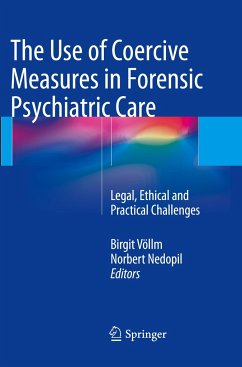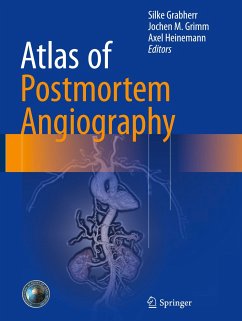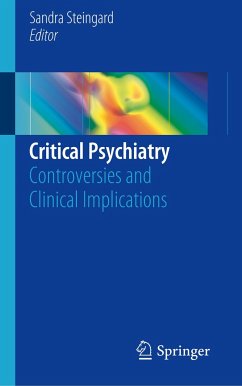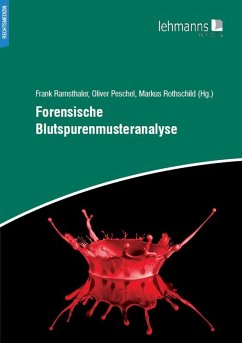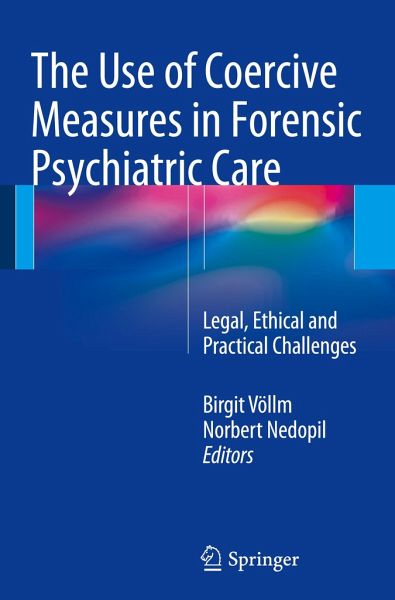
The Use of Coercive Measures in Forensic Psychiatric Care
Legal, Ethical and Practical Challenges
Herausgegeben: Völlm, Birgit; Nedopil, Norbert

PAYBACK Punkte
65 °P sammeln!
This book presents the legal context and describes the ethical and practical challenges when using coercive measures in forensic psychiatric settings. A wide range of aspects relevant to the use of such measures, including environmental, patient-related, and staff-related factors, are explored, and the experience of coercive interventions is described from the staff and the patient perspective. Differences in jurisdictions and examples of good practice are highlighted. The authors are from a range of professional backgrounds, ensuring breadth as well as depth in discussion of the topic.The use...
This book presents the legal context and describes the ethical and practical challenges when using coercive measures in forensic psychiatric settings. A wide range of aspects relevant to the use of such measures, including environmental, patient-related, and staff-related factors, are explored, and the experience of coercive interventions is described from the staff and the patient perspective. Differences in jurisdictions and examples of good practice are highlighted. The authors are from a range of professional backgrounds, ensuring breadth as well as depth in discussion of the topic.
The use of coercive measures, in particular restraint, seclusion, and involuntary medication, for the control of aggression in psychiatry remains controversial. Forensic mental health care deals with individuals who pose a risk to others and often present with significant management problems within institutions. The care of patients in these settings gives rise to debates about the balance between care and safety, and between the interests of the patients and those of the wider society to be protected. Despite these tensions, limited research has been conducted specifically on the use of coercive measures in forensic mental health care. This volume aims to fill the gap and will be of value to all professionals working in forensic psychiatric settings as well as to those working in general psychiatric and custodial settings, law professionals, and patients.
The use of coercive measures, in particular restraint, seclusion, and involuntary medication, for the control of aggression in psychiatry remains controversial. Forensic mental health care deals with individuals who pose a risk to others and often present with significant management problems within institutions. The care of patients in these settings gives rise to debates about the balance between care and safety, and between the interests of the patients and those of the wider society to be protected. Despite these tensions, limited research has been conducted specifically on the use of coercive measures in forensic mental health care. This volume aims to fill the gap and will be of value to all professionals working in forensic psychiatric settings as well as to those working in general psychiatric and custodial settings, law professionals, and patients.



